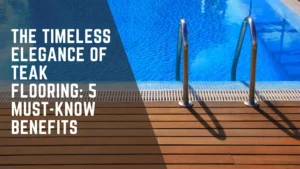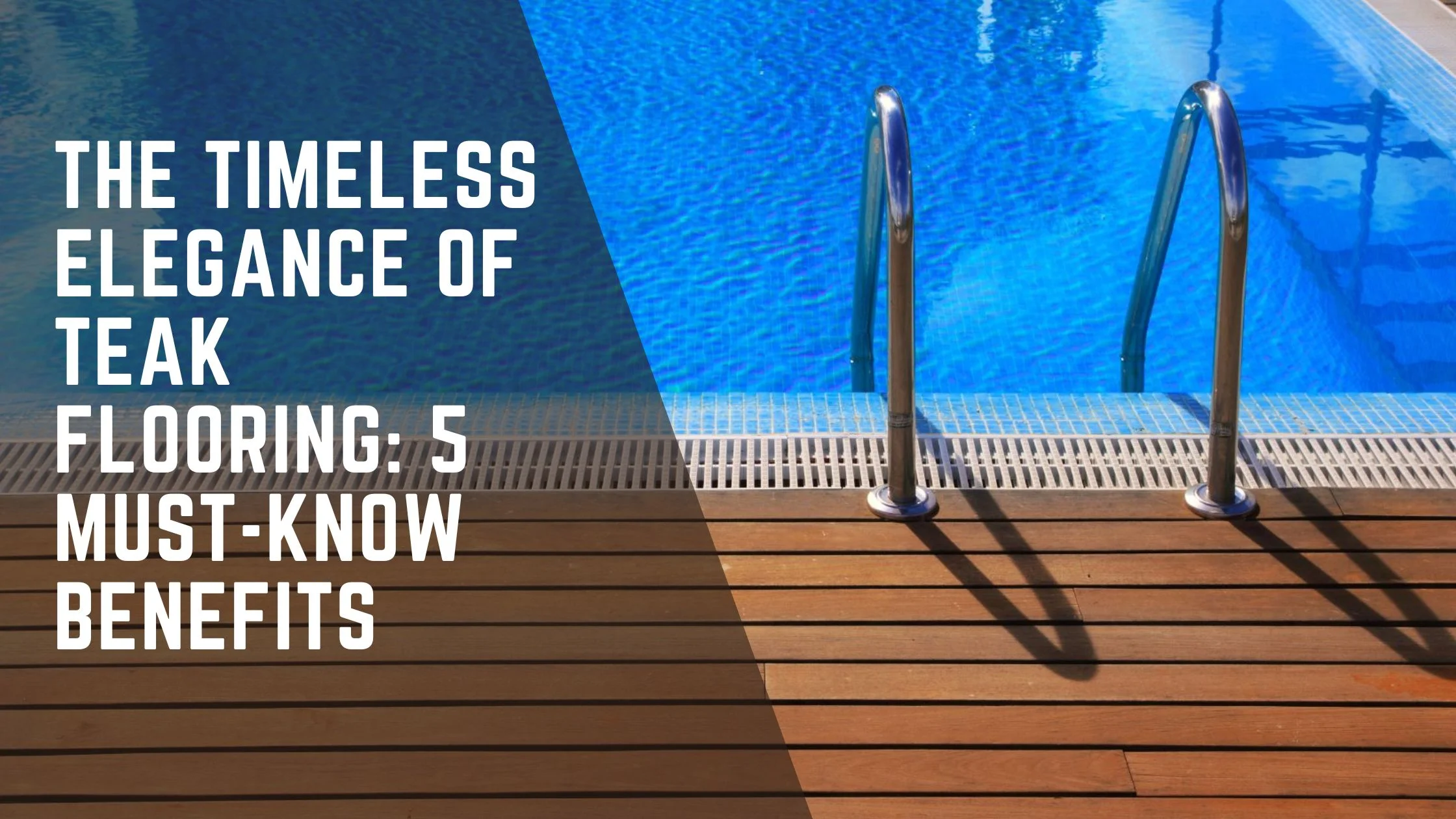When it comes to selecting a high-quality, durable countertop for your kitchen remodeling project, you have two major contenders – quartz and granite. While both materials offer beautiful aesthetic appeal, deciding which one is right for your space can be tricky. In this blog post, we’ll explore the key differences between these two popular materials so that you can make an informed decision about which one will best suit your style and budget. So, let’s get started discovering the differences between quartz and granite countertops!
What Is Granite?
Granite is an exceptionally tough and completely natural stone sourced from quarries worldwide. Once extracted, it undergoes meticulous cutting and polishing to achieve a stunning sheen.
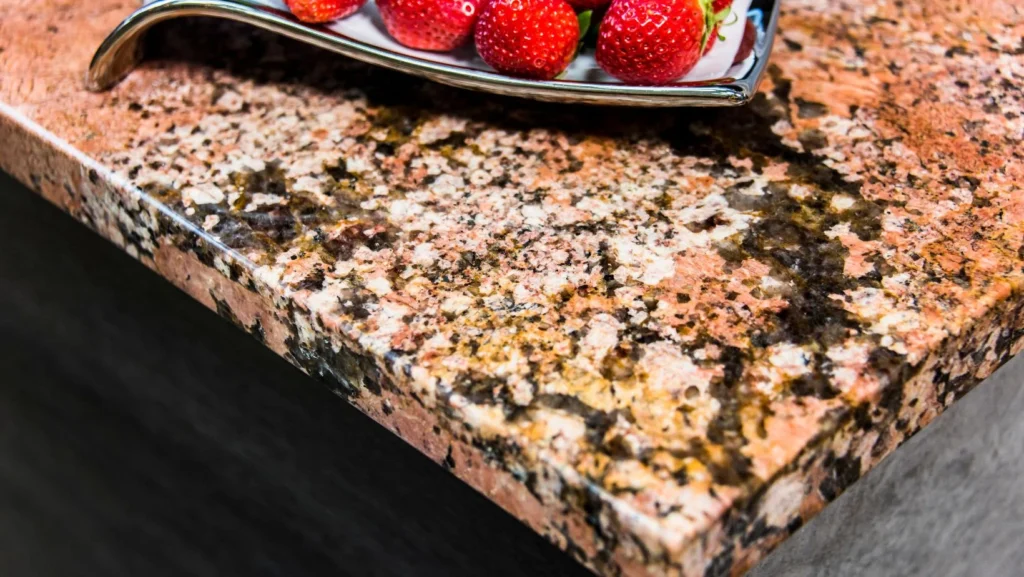
What Is Quartz?
On the other hand, quartz is composed of 95% pulverized natural quartz and 5% polymer resins. Countertops made from this material showcase an intriguing blend of nature and engineered innovation.
Quartz vs. Granite
Looks
One advantage of granite over engineered stone is that each granite slab comes with its own unique mineral pattern and color, thus rendering every kitchen countertop as one-of-a-kind. On the other hand, quartz countertops have a more consistent appearance since they are manufactured products. However, you’ll still find a wide variety of exciting colors and patterns in quartz as well.
Ultimately, the choice comes down to personal preference. If you prefer the look of authentic natural stone, then granite is the way to go. But many people actually find that quartz countertops look distinct and even better than real stone. It all depends on what appeals to you and your specific space.
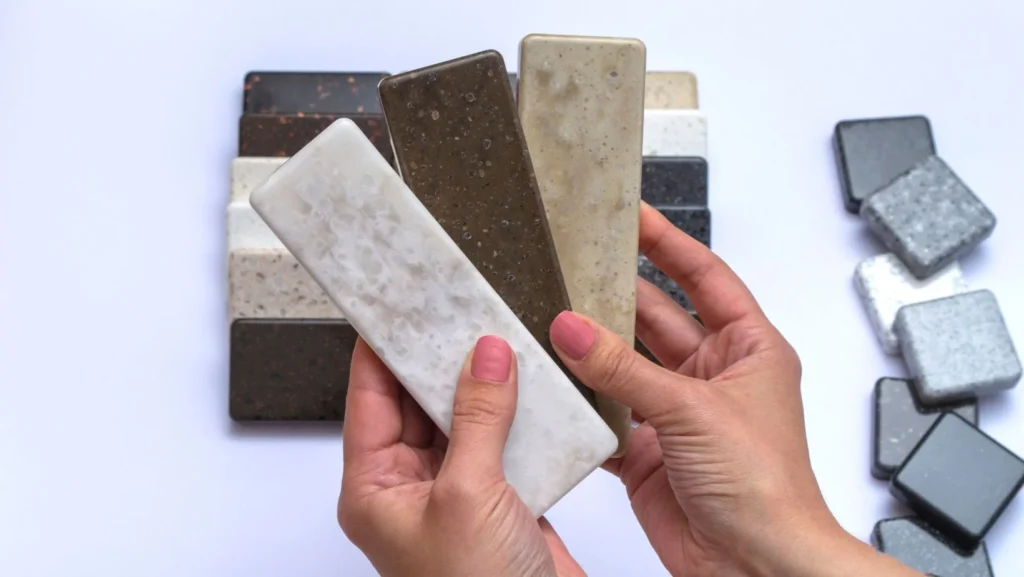
Cost
The average cost of purchasing and installing granite countertops falls between $2,000 and $4,500. While you can save money by buying the material wholesale and doing some preparation work on your own, it’s best to leave the final fabrication and installation to a professional to ensure long-lasting results of high caliber.
On the other hand, installing quartz countertops in a kitchen typically costs between $3,000 and $7,500. You might save some money by handling certain preparatory tasks yourself, but keep in mind that engineered quartz is heavier than traditional stone surfaces. So to ensure the area is structurally sound, it’s essential to have a professional installer oversee the installation process.
Durability
When it comes to durability, quartz has a clear advantage over granite with the exception of its lower resistance to heat. Let’s take a closer look at the maintenance and durability aspects of each material.
- Sealing: Granite, being porous, requires sealing during installation and occasional resealing. In contrast, quartz countertops don’t need sealing thanks to the resins used in their manufacturing.
- Breaking: Granite slabs may be prone to breaking due to inherent faults, whereas quartz, with its consistent composition, rarely breaks.
- Staining: The resins in quartz make it highly resistant to stains, giving it an edge over granite in this aspect.
- Bacterial resistance: Due to the resins, Quartz’s less porous surface makes it less susceptible to bacterial growth than granite.
- Heat resistance: While both stones can handle the heat, granite surpasses quartz in terms of excessive heat resistance. Granite is renowned for its exceptional ability to withstand high temperatures, making it an ideal choice for countertops as it can safely accommodate hot cookware without sustaining any harm. Quartz, however, may get scorched when exposed to high temperatures (such as kitchen or bathroom appliances).
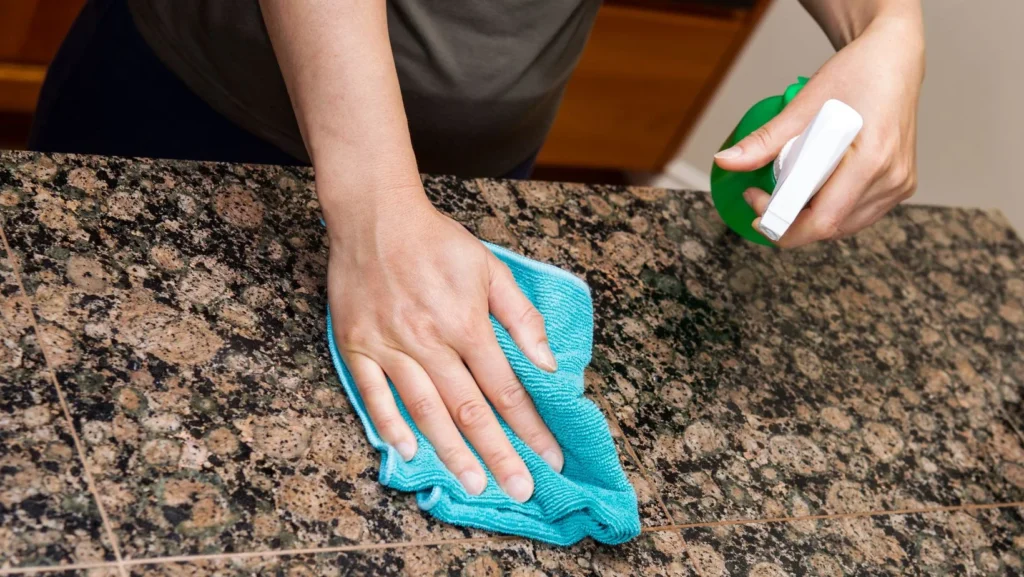
Environmental Impact
Both countertop materials are mostly made from natural elements, but the slight advantage goes to granite since it’s entirely composed of stone. Quartz, on the other hand, contains natural components, color pigments, and polymer resins that hold everything together.
However, while granite countertops need to be quarried from the earth, quartz countertops are made from leftover stone scraps, eliminating the need for quarrying.
The media sparked some concern regarding radon emissions from granite countertops. However, current studies have shown that both granite and engineered stone countertops emit very little or no radon.
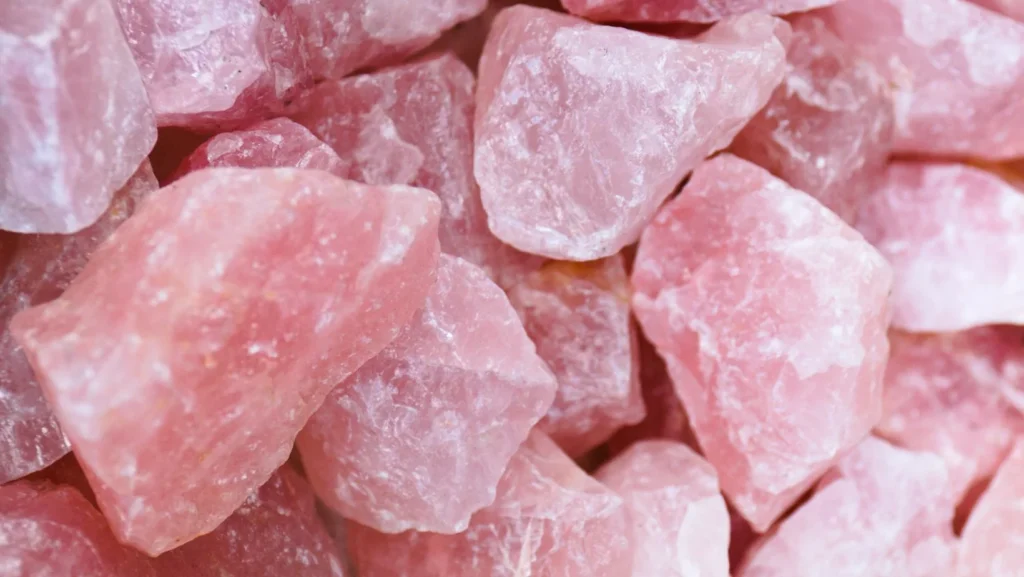
Choosing between quartz and granite countertops comes down to personal preference and practical needs. Granite offers natural beauty and heat durability, while quartz excels in versatility and low maintenance. Both options can create stunning spaces that enhance the value and appeal of any home. Ultimately, the decision rests on individual style, preference, and availability.



